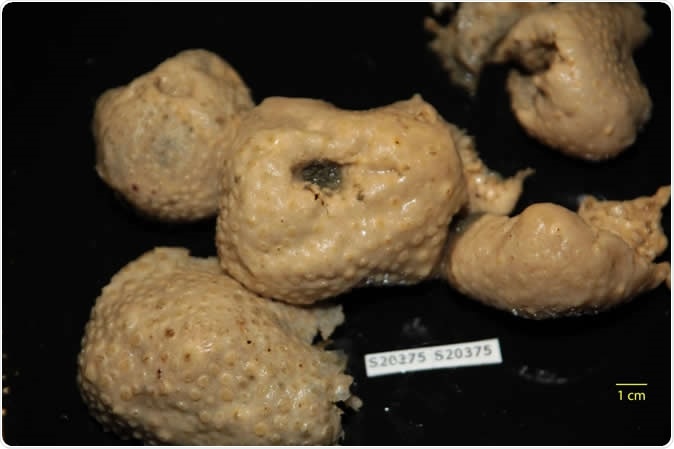Malaria, which ravages hot tropical areas, could be treated effectively using a protein extracted from an Antarctic sponge.

Antarctic sea sponge extracts provide leads for new malaria treatments. Image Credit: Bill Baker
In 2017, the World Health Organization (WHO) reported 219 million malaria cases the world over, which caused over 430,000 deaths. This deadly disease is caused by a parasite called Plasmodium which enters the human body through a mosquito bite. The female Anopheles mosquito is typically involved as it needs a blood meal to lay its eggs.
The Plasmodium life cycle requires two separate hosts. The infective form is called the sporozoite, and is injected into the host through the saliva accompanying the mosquito bite. This form then needs to enter the liver cells where it multiplies rapidly without coming apart. This form is called the schizont. Once the schizont is mature, it ruptures, and the component parts, or merozoites escape into the blood. Here they enter the red cells and again multiply. The schizonts inside the red cells also escape once they are mature, to release the merozoites into the blood. It is the parasites in the blood that cause the clinical signs and symptoms of malaria.
The parasites also form a few sexual stage forms, called macro- and micro-gametocytes. If a mosquito ingests these, the microgametes fertilize the macrogametes, forming zygotes which turn into active ookinetes. These elongated forms burrow into the wall of the mosquito gut and encapsulate themselves to form oocysts. These enlarge and rupture, releasing a flood of sporozoites, all ready to enter the mosquito’s salivary glands and repeat the next cycle all over again. Thus, the plasmodium requires two hosts to complete its life cycle.
Conventional treatment is based on artemisinin and related compounds, but these only act to inhibit the multiplication of the parasites inside the blood cells. Artemisinin is taken from the plant Artemisia annua, and has given rise to a number of drugs that quickly reduce the number of parasites in the blood. It is part of the WHO protocol for first-line and second-line therapy. The drug binds to over a hundred proteins used for a host of biochemical reactions in the parasite, thus inactivating and killing the Plasmodium. Even after decades of extensive use, the drug still shows full or partial activity against the parasite. Partial resistance is currently overcome by partnering with a still active drug. The artemisinin or its derivative acts by quickly clearing the parasites from the blood within the first three days from the start of treatment, while the partner mops up the rest.
Moreover, drug resistance is being reported more and more widely. In turn, researchers are trying to find new means to kill the parasite earlier in its lifecycle, as in the liver. At this stage, the number is lower and resistance genes may not have been expressed yet.
To help in their search for such drugs, the current study looked at the chemical defences used by the Antarctic sea sponge Inflatella coelosphaeroides against its attackers. They found that a certain molecule called friomaramide stopped the Plasmodium from entering liver cells in culture, so that it could not develop any further. Its efficacy at a concentration of 6.1 μM was as high as that of primaquine, inhibiting the development of over 90% of the parasites in the liver. Primaquine is among the current drugs used to kill the parasites in their liver stage.
On exploring the chemistry of the compound, they found it to be a linear peptide composed of only six amino acids, but with a peculiar structure with permethyl residues attached to the amino acid backbone. This is the longest peptide so far that has a tryptenamine residue at the C-terminal end. It stops plasmodium infection but is not toxic for the liver cells. The researchers are confident that they can follow up with new drugs to treat malaria.
The study was published in the Journal of Natural Products on August 12, 2019.
Journal reference:
Knestrick, M.A. et al. (2019) Friomaramide, a Highly Modified Linear Hexapeptide from an Antarctic Sponge, Inhibits Plasmodium falciparum Liver-Stage Development. Journal of Natural Products. doi.org/10.1021/acs.jnatprod.9b00362. https://pubs.acs.org/doi/10.1021/acs.jnatprod.9b00362